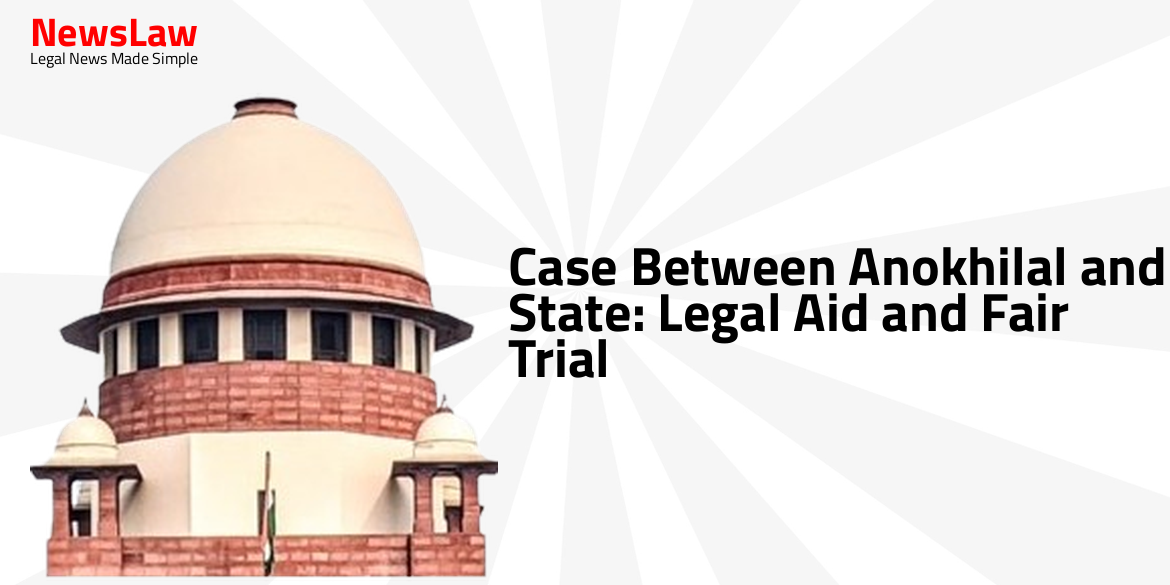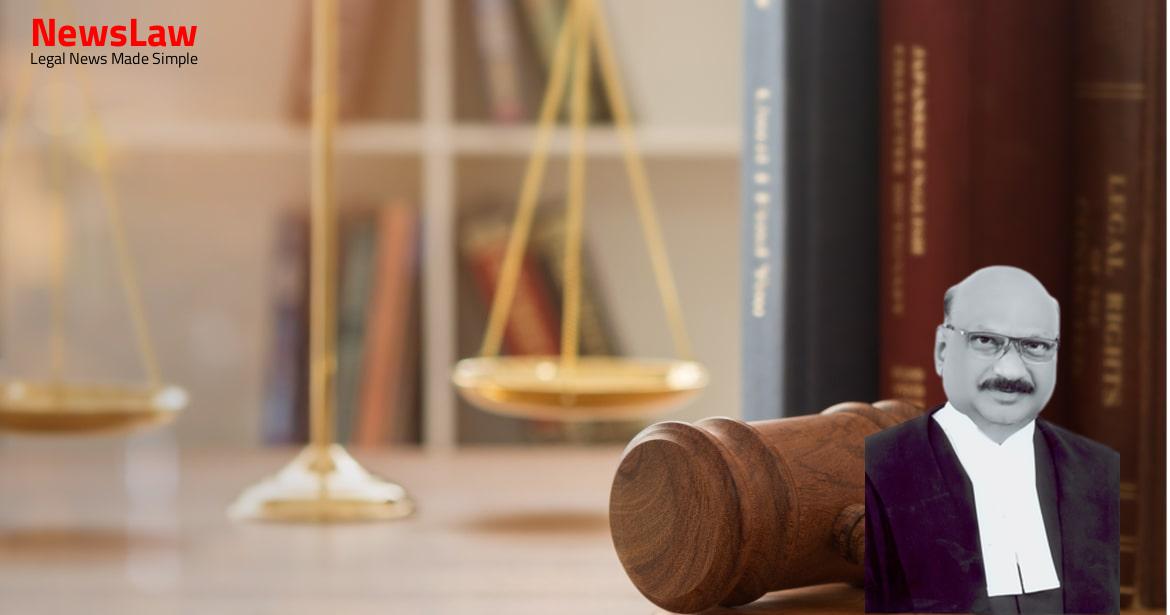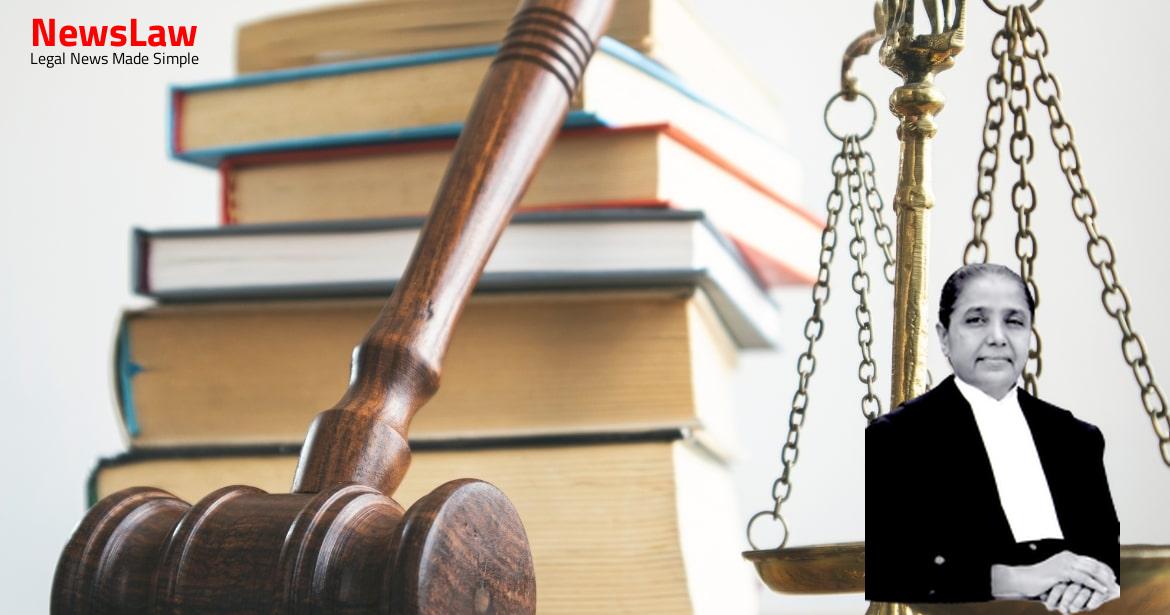A significant legal case summary from the Supreme Court of India involving convictions under Section 498-A and 306 of the IPC. The case revolves around the appellant challenging the convictions upheld by the High Court. The judgement is crucial in determining the sustainability of these convictions. Stay tuned to understand the intricacies of the verdict and its impact on Indian legal proceedings.
Facts
- Accused No.1 to Accused No.4, including the husband of the deceased, were charged under Section 304-B and Section 498-A of the IPC.
- The appeals challenge the judgment passed by the Punjab and Haryana High Court in Criminal Appeal No 544- DBA of 2001 and Criminal Appeal No 959-SB of 2000.
- The trial Judge acquitted the appellant for offence under Section 304-B of the IPC due to lack of proof of dowry demand.
- Appellant and his parents were convicted under Section 498-A of the IPC by the trial Judge.
- Accused No. 4 was acquitted of all charges as prosecution failed to prove the case against her.
- High Court convicted the appellant under Section 306 of the IPC with aid of Section 113-A of the Indian Evidence Act.
- Accused No. 4 was acquitted at trial and upheld by the High Court.
- Accused Nos. 1 to 3 were convicted under Section 498-A of the IPC by the Additional Sessions Judge.
- Prosecution succeeded in proving the case against accused Nos. 1 to 3 for offence under Section 498-A of the IPC.
- High Court upheld the conviction of accused Nos. 1, 2 and 3 under Section 498-A of the IPC.
- High Court held appellant liable for offence under Section 306 of the IPC.
- High Court sentenced the appellant to five years rigorous imprisonment and fine under Section 306 of the IPC.
- Present appeals were filed by the appellant against the convictions and sentences.
- Appellant, along with parents, appealed against the conviction and sentence under Section 498-A of the IPC.
Also Read: Review Petition filed by Landowners against State of Haryana
Issue
- The issue being considered is whether the convictions under Section 498-A and Section 306 of the IPC, as confirmed by the High Court, are sustainable.
- The High Court recorded the conviction for the first time under Section 306 of the IPC, in addition to Section 498-A.
- The sustainability of these convictions is crucial for the decision at hand.
Also Read: State vs. Selvamani: Upholding Fair Trial Conduct
Arguments
- The conviction under Section 498-A of the IPC is challenged as not tenable due to lack of corroboration.
- The conviction is solely based on the evidence of PW-10, the father of the deceased.
- The argument is made that the charge was for Section 304-B of the IPC, which has different ingredients than Section 306 of the IPC.
- The conviction under Section 306 of the IPC is deemed not viable.
- Serious prejudice was allegedly caused to the appellant as a result.
- The father of the deceased, PW-10, mentioned that the appellant had congenial meetings with him during the trial.
- The appellant’s congenial behavior with the deceased’s father was considered unnatural and cast doubt on his testimony.
- The State’s counsel argued that the conviction under Section 498-A of the IPC should not be interfered with as the death occurred within seven years of marriage.
- The State’s counsel also pointed out that the similarity between the ingredients of Section 304-B and Section 306 of the IPC did not prejudice the appellant.
- The deceased died an unnatural death by consuming poison on 28.09.1994, and the prosecution successfully proved the ingredients for conviction under Section 306 with the aid of Section 113-A of the Indian Evidence Act, 1872.
- The appellant’s dispute regarding the date of marriage to be 04.02.1989 was not accepted by the courts, and his disbelief was deemed justified.
Also Read: Land Dispute Legal Battle: Vijay Laxman Bhawe vs. P & S Nirman Pvt. Ltd.
Analysis
- Section 113-A of the Indian Evidence Act gives the court discretion to raise a presumption of abetment of suicide by the husband or his relatives if the woman committed suicide within seven years of marriage and was subjected to cruelty.
- Merely proving that a woman committed suicide after being subjected to cruelty does not automatically imply abetment by the husband; all circumstances of the case must be considered.
- To prove abetment under Section 306 IPC, it must be shown that the accused instigated, conspired, or intentionally aided the suicide.
- The prosecution bears the burden of proving beyond reasonable doubt that the accused directly contributed to driving the woman to commit suicide.
- Section 107 IPC defines abetment as instigating, conspiring, or intentionally aiding in the commission of an offense.
- Section 113-A further clarifies that cruelty should be understood in the context of Section 498-A of the IPC, which defines cruelty against a woman.
- The case must be decided based on whether the accused-appellant directly instigated the suicide.
- Section 113-A allows the court to presume abetment of suicide if the woman committed suicide within seven years of marriage and was subjected to cruelty by her husband or his relatives.
- In cases of abetment of suicide under Section 306 IPC, the prosecution must establish a cause-and-effect relationship between the cruelty and suicide for presumption under Section 113-A of the Indian Evidence Act.
- The presumption under Section 113-A is permissive, not mandatory, and requires consideration of all other circumstances of the case.
- The existence and availability of specific circumstances alone do not automatically enable the presumption; the court must assess all surrounding circumstances.
- The court observed that no offence under Section 304-B IPC was made out against the accused, yet convicted them under Section 306 IPC, even without a separate charge being framed under Section 306.
- Before raising a presumption, the foundation for the presumption must already be established based on the evidence and circumstances of the case.
- The burden of proof to show the offence under Section 498-A IPC lies on the prosecution, even when a presumption is drawn under Section 113-A of the Evidence Act.
- In the case of Narwinder Singh vs State of Punjab, the question of whether an accused can be held guilty for an offence punishable under Section 306 of the IPC with the aid of Section 113-A of the Indian Evidence Act when cruelty under Section 498-A is established and the deceased committed suicide within seven years of the marriage was considered.
- The case of Ramesh Kumar vs State of Chhattisgarh addressed a similar issue where subjecting a woman to cruelty leading to suicide was discussed.
- The court observed that cruelty under Section 498-A and abetment to commit suicide under Section 306 of the IPC are independent offences.
- The court also emphasized that to establish instigation, the conduct must be suggestive of the consequence.
- Various cases were cited to highlight the importance of careful assessment of facts and circumstances in determining if the cruelty induced the victim to commit suicide.
- The court reiterated that depending on the circumstances, cruelty under Section 498-A may amount to abetment of suicide under Section 306.
- Instances from past cases were referenced to demonstrate the need for a reasonable certainty in inciting the consequence of suicide.
- The part concludes by mentioning a case where the accused was not found to have abetted the suicide of the deceased due to lack of material evidence.
- Permissible cases of conversion are distinguishable from the current situation
- Charge does not mention harassment leading to suicide or abetment by accused
Decision
- The appeals are partly allowed.
- The appellant’s bail bonds shall stand discharged.
- The appellant is directed to surrender within four weeks to serve the remaining period of his sentence, if not already undergone.
- Conviction under Section 498-A of the IPC is maintained.
- Conviction under Section 306 of the IPC is set aside.
- The appellant is acquitted of the charge under Section 306 of the IPC.
Case Title: GURJIT SINGH Vs. THE STATE OF PUNJAB
Case Number: Crl.A. No.-001492-001493 / 2010



